Category: Governance
-

The Real Structures Sustaining the Cyberspace Imaginary – II
History Matters Following the historical evolution of the Internet and Cyberspace sheds light on the origins of the “superhighway” and “virtual” metaphors, depicted in the first part of this post. Useful summaries from a pure infrastructural perspective are available from the NFS and UCSD, the latter furnishing cool schematic diagrams of the overall network architecture.…
-

The Real Structures Sustaining the Cyberspace Imaginary – I
Recreating the Imaginary If I were to ask another human being (not ChatGPT) for directions to Cyberspace, most would probably think I was joking. Others might consider me an imbecile or conclude I must be flying high on drugs. Finally, a selected few might quickly flash their super smartphones and try to explain in the…
-

Chatting with ChatGPT
OpenAI’s new shiny chatbot, with the not-so-brilliant name of ChatGPT, has taken the world by storm, surprising most, company staff included. Evidence of the latter stems from the fact that whenever one tries to access the platform, a message announcing imponderable delays quickly pops up on the screen. Clearly, the current demand is way above…
-
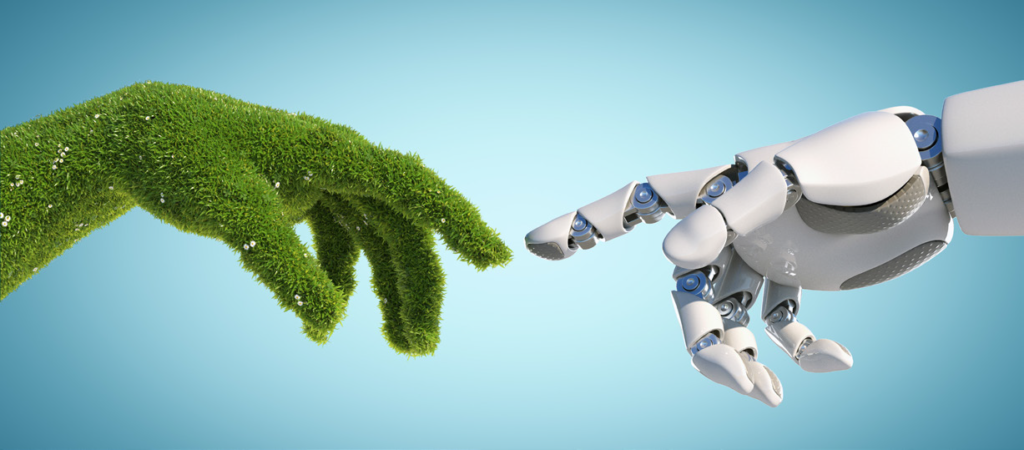
How Green is AI?
Playing Games My father taught me how to play chess when I was nine years old or thereabouts. He played his fair share of games while he was studying engineering. He told me that a few of his classmates quit thanks to their chess obsession, an example I should not follow. Not a smart move,…
-

ICTs and Emissions – V
Walking Around the Main Gallery Unlike its basement, the abode’s main gallery is noisy, crowded and chaotic, offering a maze-like layout we need to navigate safely. Indeed, one can easily get lost, and while checking in is pretty simple, finding one of the exit doors is undoubtedly far more elaborate. Thus, we must stand on…
-
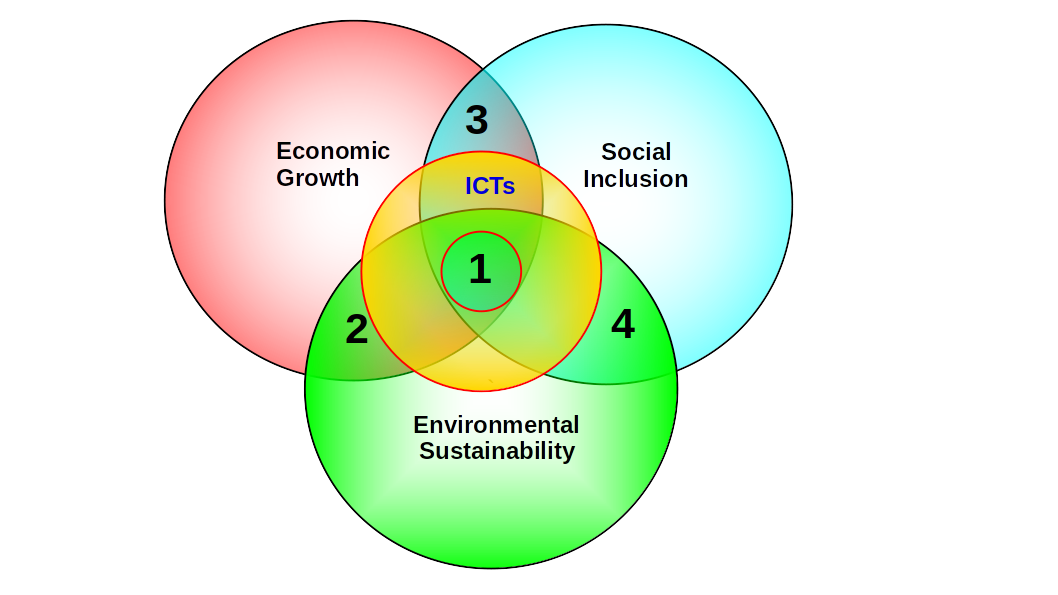
Digital Technologies and Sustainable Development: The Missing Link
Context Nowadays, digital technologies occupy most of the interstices of society. While the global pandemic exposed glaring gaps, especially in developing countries, avoiding their mantra seems torturous. Undoubtedly, their rapid diffusion in the last 30 years is historical (Comin & Mestieri, 2018). However, once touted as unstoppable drivers for social change, many now perceive modern…
-

ICTs and Emissions – IV
Environmental Footprints As previously mentioned, data centers (DCs) depend not only on energy consumption but also require plenty of water for survival, just like humans. We thus have increasing competition for a critical resource, significantly when droughts and wildfires are increasing. Not surprisingly, the availability of adequate and nearby water resources is one of the…
-

ICTs and Emissions – III
The Abode is a Humongous Shopping Mall As some pundits have observed, data centers (DCs) are the backbone of the digital realm—hiding in plain sight, I would add. However, DCs do not live alone in their noisy, albeit warm homes. They cannot afford to for existential, not financial, reasons. DCs depend on several other beings…
-

ICTs and Emissions – II
Cyberspace Mansions In 2009, amid the Global Financial Crisis, the U.S. National Security Agency (NSA) announced plans to create a 1.2 billion dollar data center (DC) in Utah. Indeed, surveillance once again proved it is immune to economic disasters, regardless of magnitude. In any case, actual construction began only in 2011, after government approval. The…
-

ICTs and Emissions – I
Digital technologies’ social ubiquitousness is indisputable. Indeed, escaping their mantra seems unreal, almost dystopic, regardless of location or connectivity. The TINA (there is no alternative) principle appears to be entirely at work here. It is thereby paradoxical that new ICTs are conspicuously absent from big-ticket global climate change policy documents such as the 1997 Kyoto…
-

RegTech is Here!
Modern FinTech saw the light of day with the launch of ATMs in the late 60s. A few years later, NASDAQ was born, credit cards exploded, and banks started to deploy mainframes and minicomputers to support their operations. The 1990s brought both the Internet and the consolidation of global financialization that accelerated Fintech’s development, while…
-
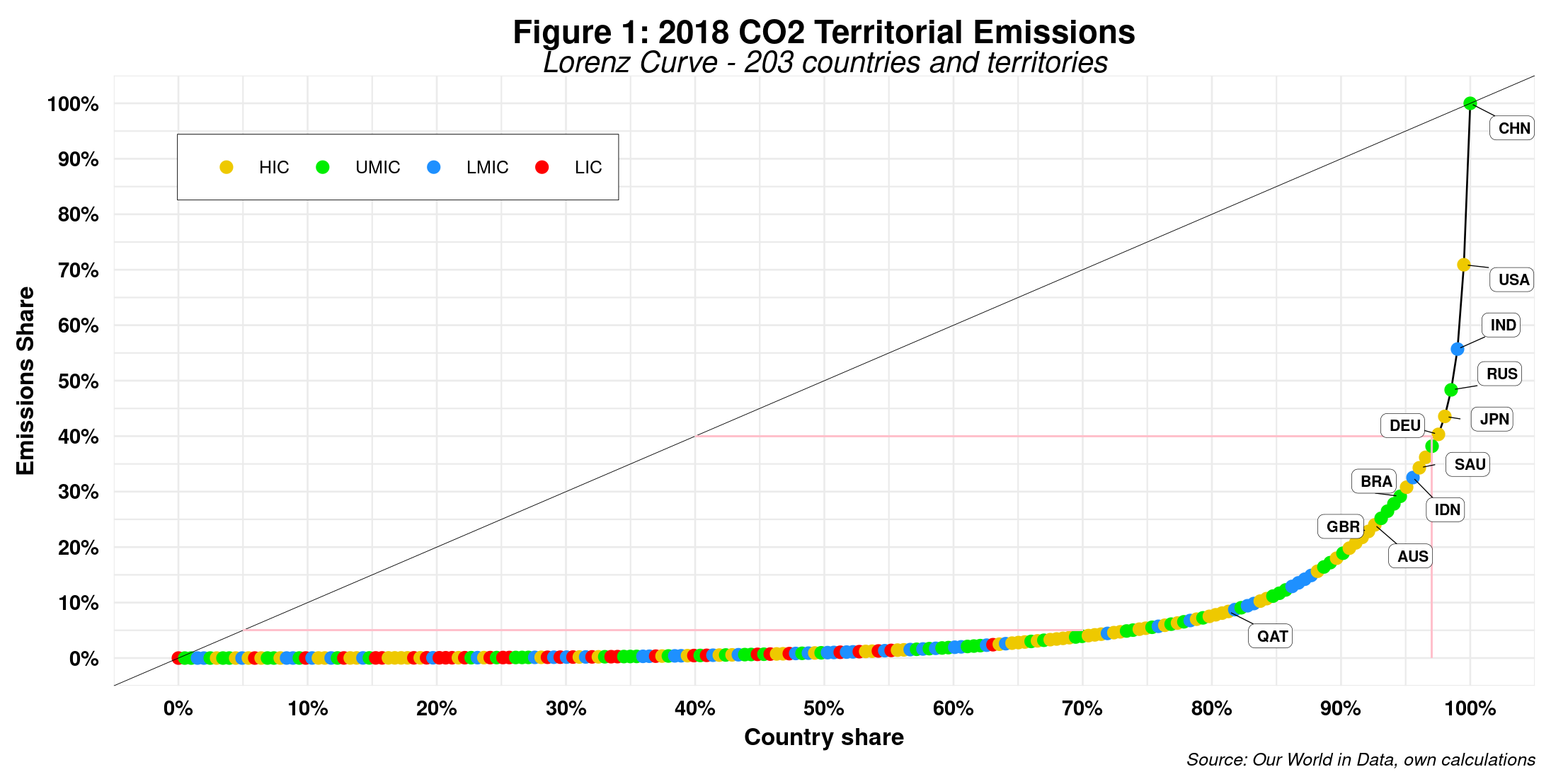
Carbon Inequality
My previous post highlighted a gap between the Glasgow CoP26 mitigation targets and GHG emissions data. The best example here is the selection of methane as a priority while the big elephant in the room, CO2, mentioned in passing, escaped almost unscathed. Indeed one could argue that such global meetings must make choices, some of…
-
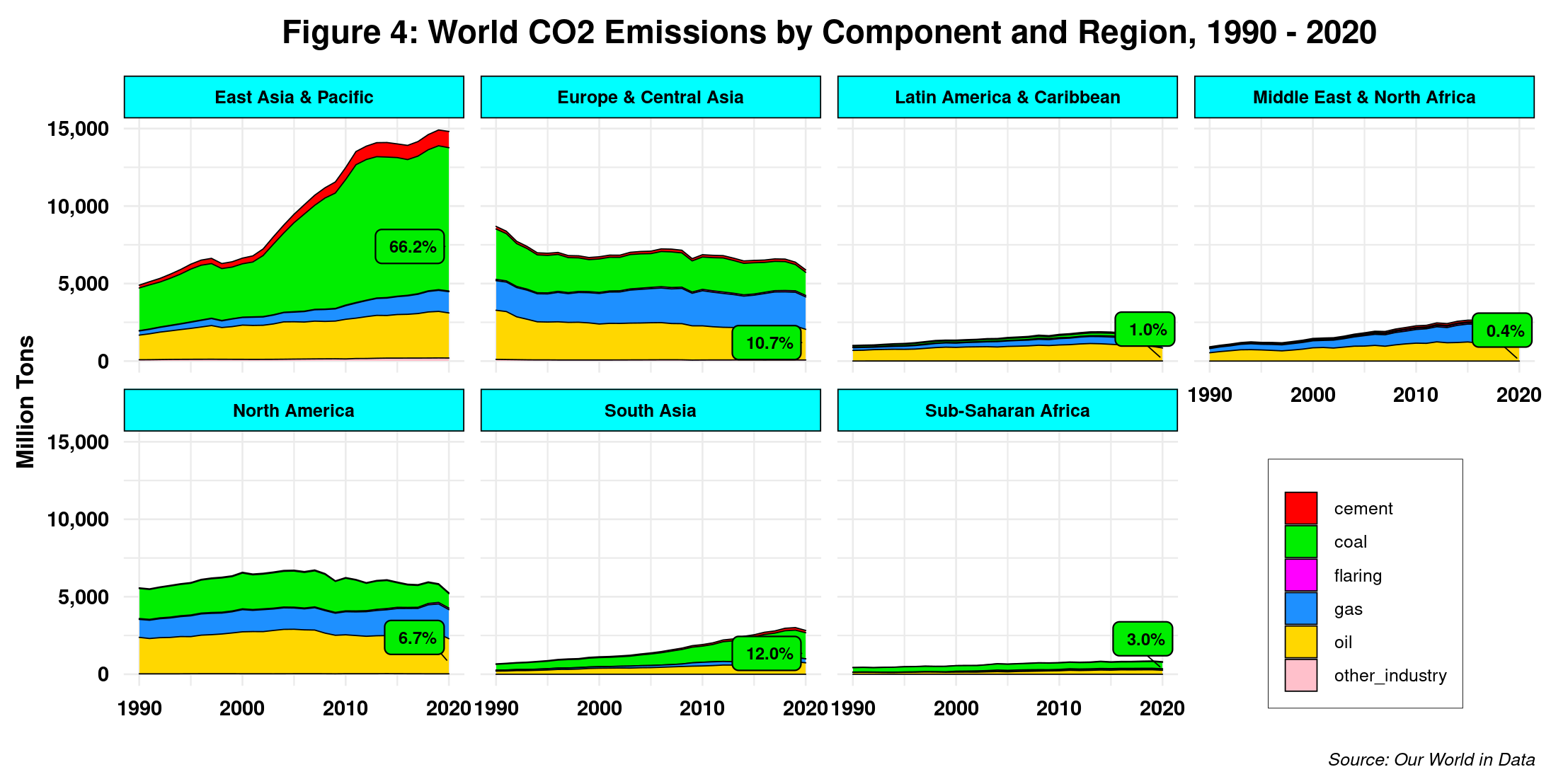
Net-zero Emissions and Developing Countries – II
As discussed in the previous post, low-income and most low-middle-income countries play almost no role in methane emissions. Therefore, embarking on related targets and projects will not make a dent on a global scale. Instead, it might end up increasing foreign debt and diverting from other perhaps more pressing developing gaps, local climate change issues…
-
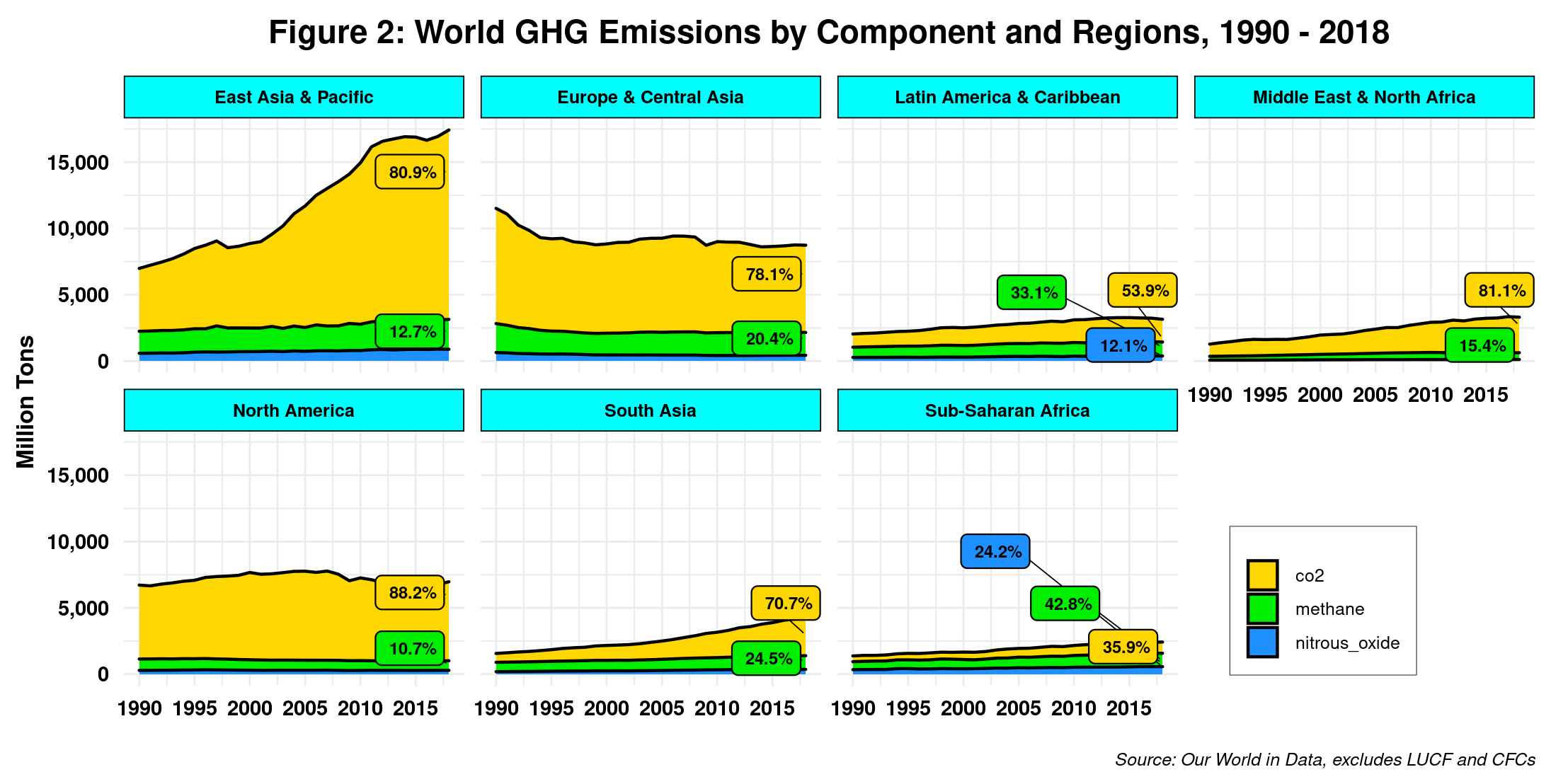
Net-zero Emissions and Developing Countries – I
If Climate Change rings to many of us as an almost insurmountable global challenge, then net-zero has recently emerged as its apparent universal solution. The coin has finally been imprinted with two clearly defined sides, in constant and inseparable opposition. Many would argue that we can sleep well again; the apocalypse has been postponed indefinitely.…
-

Towards a Public Internet?
Memory insists on telling me every so often that the first time I ever used the Internet was at the tail end of the 1980s. A couple of years earlier, the college where I was struggling to finish my Ph.D. (memories of a lost war come back often, too!) had connected, with our help, to…